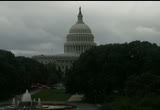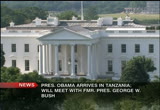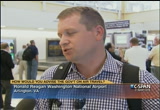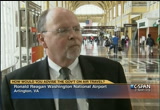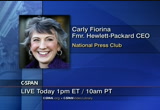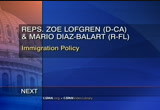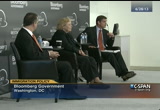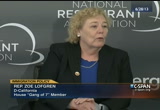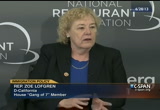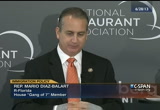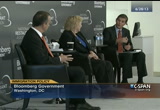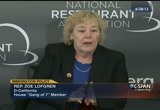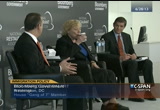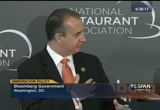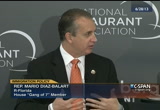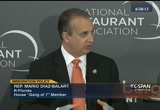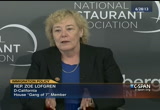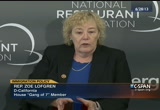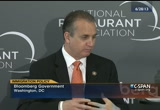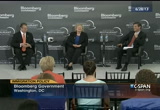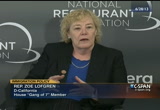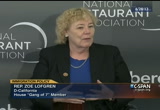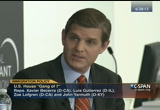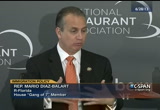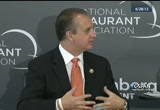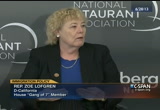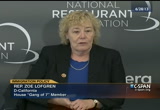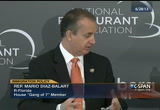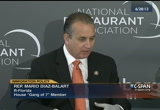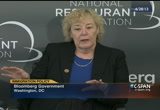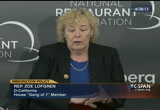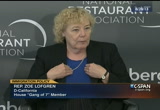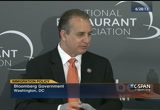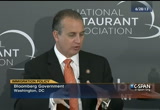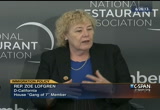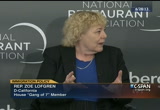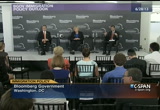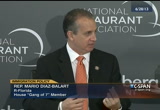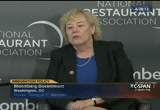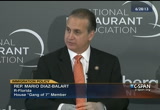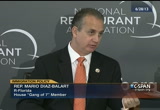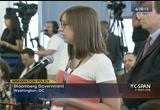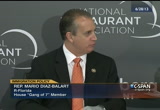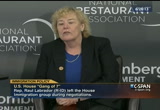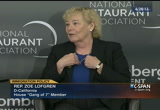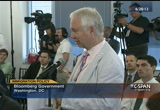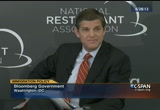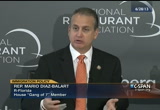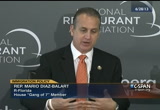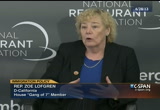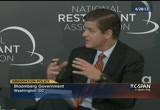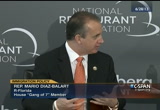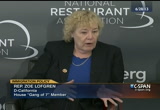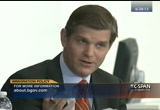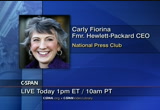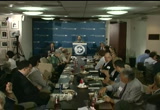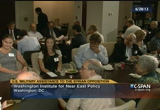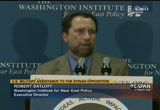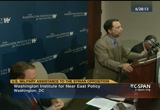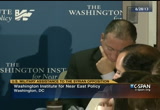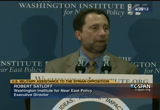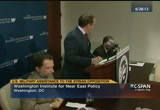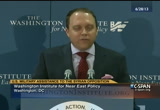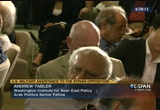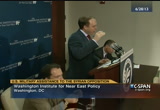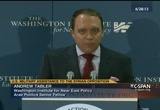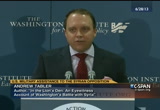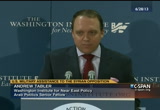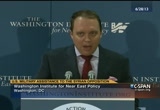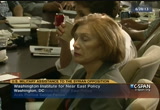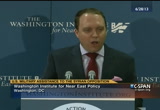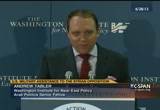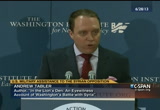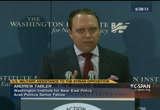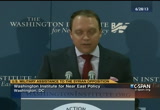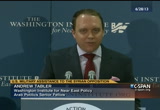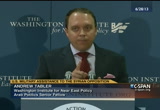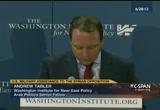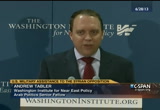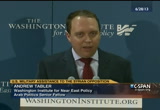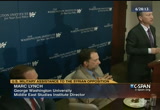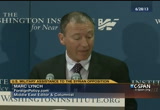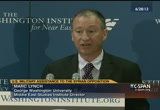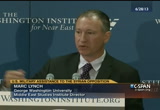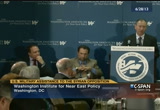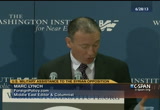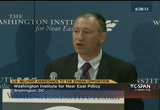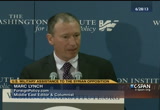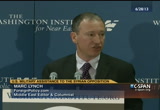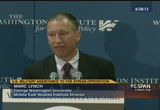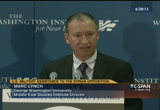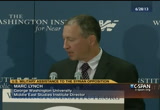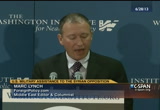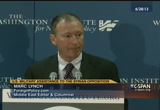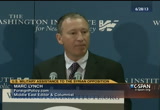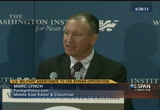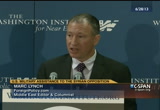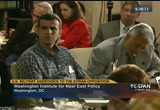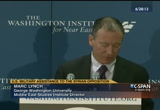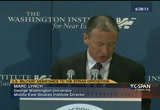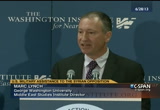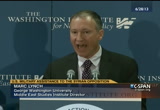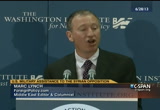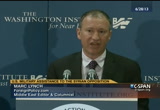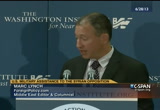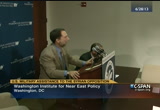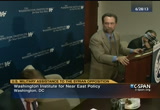tv Politics Public Policy Today CSPAN July 1, 2013 10:00am-12:01pm EDT
10:00 am
we're looking live at the u.s. capitol on this monday. congress congress is not in session this week. lawmakers are at home for the fourth of july recess. members took care of items including passing an immigration bill in the senate. wasitem that was not done passing the student loans. more than 7 million students will see interest rates on their student rate double from 3.4% to six .8% after the failure of congress to pass legislation. they successfully deferred for a year last summer. lawmakers love for the weeklong recess without implementing any of them letting the deadline passed. staffordnts renewing loans after today's deadlines can expect to pay an additional 3000 on a23,000 loan paid off
10:01 am
over 10 years. >> president obama and the nether family arrived in tanzania. it is the last often there are three country tour of africa. the president will meet with president george w. bush was there with his wife laura. the two presidents will join together tomorrow for a serve .urden -- ceremony the embassy has since been relocated. michelle obama and laura bush went to team up on a conference tomorrow. they're promoting education and economic empowerment. they are scheduled to return to washington on wednesday. the president earlier today took time to react to news out of arizona that 19 firefighters were killed while battling a wildfire in the yarnell.
10:02 am
the president is saying that yesterday 19 firefighters were killed in the line of duty while fighting a wildfire. they were heroes. highly skilled professionals who selflessly put themselves in harms way -- here on c-span today, the former hewlett-packard ceo talks about her work. a group that helps groups donate excess merchandise to charities. we'll will hear more about that in a moment. tonight at 8:00, we will bring
10:03 am
you an event with gary kelly on as he takes questions from an audience from the university of denver. after that we will open our phone lines and asked what your advice would be to the federal government to improve air travel. we recently asked that question outside washington, dc. here is what people had to say. >> the most significant thing as questions from an audience from the university of denver. after that we will open our phone lines and asked i have seen, i travel every week. there are the security checkpoints. having more cities just beyond the major metropolitan areas would be fantastic. then linking that up against potentially increased number of route checkpoints. for cheaper prices. that is significant. a significant amount of money two months ago.
10:04 am
i think those are the two big things i would like to see, more regulation for the government. >> i find mostly delta. they might need this from detroit to philadelphia. the airfares are all over the board. it seems to me they could do a better job. they're trying to put more seats in the planes as well. it is crowded. what we have now is ok. anymore would be not good at all. >> dothey're trying to put more seats in the planes as well. it is crowded. what we have now is ok. anymore would be not good at all. >> do you think there is a role to makegovernment now
10:05 am
any new rules or regulations that would help that? >> this has been a testament to the general population. travelers are at their mercy. they can charge higher prices. particularly business travel. it is absolutely outrageous. they are gone all week. i think the government can certainly regulate airfares. to make
10:06 am
she was key to troop morale. .e felt that very strongly she would organize the other lives. khey would have, they would coo for the soldiers. they would put on these great entertainment for the soldiers. this was keeping the army together. washington said he cannot do it without martha. he better to come to camp every year so that she could work.
10:07 am
the troops adore tour. lady washington is here. they discuss first ladies from martha washington to michelle obama. monday night at 9:00 eastern on c-span. passeder the senate their version of of an immigration bill, members of 7e gains of seven -- gang of spoke of the prospects of this passing in the house. they will not take up whatever passing in the house. they will not take up whatever the senate passes on legislation. this continues to work to come up to an agreement on immigration policy. >> thank you for being here. thank you to the media
10:08 am
representatives. span, bloomberg television covering this event. we appreciate your interest. it gives you a sense of how important this is. this is an issue of the incredible importance to the country, business community, bloomberg, to the nation as a whole, and we are lucky to have two people right at the heart of the debate in congress and house of representatives, two members of the gang of seven who have been negotiating a bipartisan compromise for the last few years up on capitol hill, behind closed doors most of the time. at a time when reporters are racing all over the hill to find members of the gang of seven, we are lucky enough to have them here on stage. for me as a reporter, it is great for me to find out your sense of where things go from here. congresswoman zoe lofgren from california, she is on the
10:09 am
judiciary committee, ranking member on the immigration subcommittee. she represents silicon valley, of course, which has a big stake in the outcome of these debates. and we have republican mario diaz-balart of florida, a critical player in these issues, someone that the leadership has put to an immigration. we are happy to have both of you here. i went to begin by letting you all know that at about 9:00 time, we will turn it over to the audience for questions. we ask you to step to the microphones here, identify yourself, and we will turn it over to you for some good questions for our panelists. congresswoman, i begin with you. your immediate reaction to what happened in the senate yesterday and how that changes the debate
10:10 am
about to play out in the house of representatives? >> first, thank you for the introduction and point out that we do not consider ourselves a gang. we are a working group. we have been working for the past several years to try to reach consensus in the house on a bipartisan bill. i was happy for the senate that they were able to have such a large vote for reform measures. i know it took a tremendous effort, compromise to reach that point. i think it really cheered up the country in a way to see that the senate could get something done, pass a bill out. there are many good things in that bill. certainly, if it were put up for a vote in the house, i could vote for that bill. mario, i am sure, will talk into greater depth, i do not get into the republican conference meetings, but i have heard for some time from my colleagues across the aisle, the intent to have a different approach in the house, not merely to take up the
10:11 am
senate bill. that has given us added incentive in our working group to try to come up with the product from the house that the conservatives in the house could embrace and that would let us move forward. i am cautiously optimistic, but obviously, there are many challenges >> i think it is a very important step in the right direction. it is no secret that for many years, both republican and democratic leadership have used immigration of the political tool. there've been ample opportunities where republicans could have solved the issue and could not do it, democrats could have solved the issue and did not do it. so it is great to see a real, serious effort in a bipartisan effort because the only way we are going to sell something that
10:12 am
is so controversial, so difficult is if it is done in a bipartisan way. and zoe is right, we are more encouraged than ever, realizing in the house, we are going to have some serious challenges. it is a more complicated place. it is bigger, more individuals. but i ultimately think the american people demand to fix what everybody recognizes is a system that is broken. it is broken for national security, economic interests. we have millions of people here who we don't know who they are who are in the shadows. everybody recognizes that. inaction, doing nothing is always easy. but the good news is that there is a group of people that we have seen in the senate and also in the house, and we know that, we have been working with them, that want to come up with real solutions that will fix the problem. and it has to be done in a bipartisan way. >> when will you all roll out your plan in response to what came out in the, and does this vote but more pressure on you all to produce a bipartisan package in the house i can be considered on the floor? >> the bill is back fromunl.
10:13 am
it is not as long as the senate bill, but it is long. the members are in the process of going through, word by word, line by line, to assure ourselves that it matches up with the agreements that we made. it is a tedious process, but it is a necessary process. we are meeting again today. that is not to say we will be finished with it today, but it will be done when it is done. it is more important to get it right, then to be getting it done by a particular deadline. i think that because it is back from the council, it tells you something -- we are at the end of the process. we have never set a deadline for ourselves. it is clear that we are not
10:14 am
going to have a vote in the house next week or in recess, the week after. there is time for this product to be part of the process. i am on the judiciary committee, as you mentioned. we have taken up a series of small partisan bills that are in some cases bizarre. we have not touched the whole issue of how you get 11 million people right with the law. how are you going to get those people to comply and move forward? that is something that we hope will be able to add value in our working group. >> you cannot deal with what is evidently a broken immigration system without dealing with the reality, again, whether you like it or not. whether you care to admit it or not, there are millions of people in this country who are here, who in many cases have been here for many, many years. we have to deal with that reality. knowing that reality does not make it go away. so i agree with what zoe said.
10:15 am
that is one of the things that we have to deal with. >> let me jump in -- does that mean, congressman, that republicans in the house are going to have to consider some days of legislation that includes a pathway to citizenship for those 11 million? or is there something short of that back and clear the house and satisfy the senate? >> first we need to recognize that the folks are here. i think if we do not get into some general policy areas of discussion, i think it would be very counterproductive for our future as a country to have a group of people who are here, who are here for ever, in essence permanently, and potentially even legally -- those who might want to, you know, really put their hands on their heart, pledge allegiance to the flag of the united states and everything that that symbolizes. to have a group of people here
10:16 am
permanently who could never do that i think is counterproductive to our future. now, having said that, you have got to balance that with making sure that we do not violate something which is sacred -- the rule of law. can you reach that balance? i think we have in our discussions. it is doable. if you wonder if i am not specifically answering your question, i am not. but i think it is very important to understand what the policy ramifications are, and can we reach a good, medium point that satisfies the role of law, making sure we don't violate the rights of folks who have been doing everything legally or will be doing things legally in the future with making sure that we don't have a group of people who are always in the shadows and who can never aspire -- those who really want to -- aspire to be part of this great country. >> speaker boehner yesterday was asked about your efforts. was he encouraging of those
10:17 am
efforts, and he said yes. you should continue your work, it will be part of the discussion going forward. congressman diaz-balart, when will he get that kind of consideration from the leadership? >> speaker boehner was very clear that this is an issue that has to be fixed this year, hopefully. i think when push comes to shove, i hate to sound -- look, when push comes to shove, i
10:18 am
think something very similar to what we have been working on is the only thing that has a shot at passing the house, of getting bipartisan support, and having a shot to go to the president's desk. the speaker clearly wants to solve the issue, and i think we will have a viable option. >> i would just add, obviously i did not vote for john boehner to be speaker -- >> there's still time, though. [laughter] >> he is a conservative republican, i am not, but he is also the speaker of the whole house. he met with me and encourage me, which i thought was very gracious he met with all democrats last week to encourage their efforts. so i think he is doing his best to reach out to both sides of the aisle. his is not an enviable position. there are very strong opinions, pro and con, in the house. i think that we as a country need to -- need a path forward on this. no one is satisfied with the status quo. we are all going to go home next week, probably this evening, and meet with our constituents.
10:19 am
i do not think anybody is going to say just keep it the way it is, it is so darn great, no, we need to fix this. >> after the conclusion of the senate vote, he said at the end of the day, he is going to have to adopt new what -- what the senate has passed. what you make of that, zoe lofgren? this fragile balance, why isn't that the solution? >> as i said in my opening remarks, i could go for the senate bill. but that does not mean that every other member of the house could vote for the senate bill. i think the republican members have been clear for some time that they want their nations on that. we are trying our best to work in a bipartisan way to come up
10:20 am
with an alternative plan that is also sound. i think we will succeed. this is the day after legislation. the senate in the end likely will not get everything that they want, and the house will not get everything that they want. that is the way things work in the legislative process. but if we do our jobs diligently, we will be able to come up with a measure that secures the border, that provides for enforcement of a workable law, that meets the needs of the american economy, that meets the needs of american families, and also do something about the 11 million people who need to get right with the law and move on with their lives. i think we can do that. >> congressman, if that senate
10:21 am
bill came to the house floor, would you be able to support it? >> you know, one of the things that i have not done and won't do because understanding that this is a very sensitive issue, is draw lines in the sand of whether i will support something or i will not support something. so i think the way that we're going to pass legislation in the house is by what we're doing, which is talking to everybody, making sure that we try to deal with those legitimate policy concerns. there are always people who are in the extremes that want to stir things up and not pass everything.
10:22 am
we have to deal with the genuine policy concerns. i think the senate bill is a very good first effort. is it perfect? no. we think our bill is a lot better. is it perfect? no. i think ultimately we will reach a conclusion. hopefully we can go to conference, hopefully we can deal with these differences, and we can come up with a bill, and so we stated what i said as well, some of the key issues that have to be soft, and i think there are people of goodwill from both parties that want to find a genuine solution that is enforceable, that helps our economy, that protect the rule of law, that protects our border, and it deals with the folks. >> you all have been very careful throughout this process not to share too many details along the way. so i'm going to try and press
10:23 am
you on that. [laughter] can you at least give us a sense, if you compare what has cleared the senate with what you are working on, where the areas of biggest agreement? as detailed as you can become a broad brush strokes, but where are the areas of tension between what you all are working on and what the senate has passed? >> you're right, we have not shared a lot. [laughter] >> i think it is best to reveal the details when the bill is introduced. it is an interesting process that we have been through. it is the only process like this and my many years in the house where we have had members themselves sitting around a table, hour after hour, we have hundreds of member hours in this process going through several
10:24 am
years and discreetly. we met for three years, and nobody in the press even knew we were meeting. we had 25 people going in two or three times a week. and we did that -- >> i want to find that room. >> sam johnson would bring the food one week, i would bring food the next week, and we did it because we wanted to understanding policy details, and we wanted to be older do that in a discreet way. one the things we pledge to each other was that we would be confidential until it was time to reveal it. we've all been faithful to that pledge, to each other, and that is held by the trust that we held with each other. we are trying to sort through the difference is so that we can have a solid plan so that we can defend. if you overlaid my voting record with that of judge carter, you
10:25 am
would not find a lot, he is a very conservative guy from texas, who i have learned is a very solid person, who i don't agree with on everything, but that does not mean that we could not craft something together. so if you disagree on nine things, it should work on the 10th if you can. that is what we are trying to do. >> we purposely, one of the reasons we have been so careful as we purposely wanted to keep the politics out of it. we do not want folks out there to start using an issue that may or may not be in the bill to start stirring things up. so we said look, let's see if we
10:26 am
can agree among ourselves, and if we can, then we have for me to talk about. if we cannot, first, we do not know if we were going to be able to agree on anything because it is a very diverse group. low and behold, it has been a very honorable process, the fact that you have people who disagree, who frankly have campaigned against each other in many cases, yet nothing ha out, nothing has been used against anybody involved in this in this for political reasons, so it has been an interesting process. >> let's talk to a couple of specifics. to get to resolve use on hot button issues in the senate and if you think you could tell us what you think about -- let's talk about border security. do we need 40,000 more order patrol agents to make sure the southern border of the united states is in fact at solid as it can be? >> we need what we need. we need to enforce the borders. we need to secure the borders. we need to do it in a way that is real, that is enforceable, and we have to have mechanism to make sure that it is done. is that the ideal way to do that? are there other ways to do that, that is up for debate. but there is a consensus around the country that the united states cannot be the only country on the planet that cannot determine who comes in
10:27 am
and who leaves. and that there are ways to do that and ways that people will understand that are real, that e foeable. the specifics of what that is, i don't think we need to get into right now, but i think there is a consensus that whatever we have to do to make sure that the united states is secure, that our borders are as secure as possible, and that includes interior security. part of that is having a visa system that works. without those aspects, you can do all you want on the border, but if you do not have a visa system that works, or an interior system that works, and will not work. >> it is interesting because this bipartisan group -- we've got luis gutierrez and javier bacera -- there is agreement that if you craft an immigration system that actually works for the country, you need to enforce it. there is no disagreement between the parties on a point.
10:28 am
>> $46 billion for border enforcement. >> we're not going to get into the specifics on that. but certainly 40% of the people who are here without proper documents did not sneak across the border. they came in with a visa and overstayed. i think you need to take a look at the whole picture. we're not going to get into details of the amount of money or criticize our senate colleagues because they worked so hard to get a bipartisan bill. but you need to have robust enforcement if you are going to have an enforceable -- >> if i may add to that, pretty soon you understand that in order to secure the borders, you have to have a visa system that works. you have to have an interior system, called it an employment verification system that works, you have to deal with border security. you have to realize that all of these are interlinked. that is why it is such a complex issue because it is not that we like it or that we don't like it, a lot of these issues are clearly interlinked. if you do not fix one, you are not fixing any of them. that as to the complexity.
10:29 am
>> i remember when i was chairing the immigration subcommittee, we had dr. richard from the southern cap this was one of our witnesses, and i would mention, i quote him because i thought it was such a great line, but his testimony was that from any years, the united states had two sides of the southern border, one said no trespassing, and the other said help wanted. people said, you should do this the right way, and we all agree with that, but we have about 1.7 million undocumented migrant farm workers in the country. and with 5000 visas a year for obviously, we did not set this up so he could work. we need to make it work, and then we need to enforce it. >> i want to ask you at the
10:30 am
visas in just a second. one quick question on the price tag -- how surprised were you with the cbo's score on the senate bill? you have an end product that reduces the deficit. >> i was not actually surprised that it was a positive score. in fact, in the prior effort for immigration reform, we have positive scores as well. it is our hope that we will have a great score. you cannot send your bills to cbo until it is done. so that would be happening as soon as we finalize the final portions of it. but i expect that we will have a good score because immigration is great for america. we get to build the economy. i will just show you -- silicon valley, my home, half the startups in silicon valley were founded by somebody born in another country. that is a job generator, and it helps create wealth in america. it is a great thing for us. >> it is also -- one of the things we have to remember is it
10:31 am
was not a surprise for me, either, by the way. >> is it a good selling point to your members of congress? >> though he and i have said it every year, and we continue to say it, without having a bill we are sure will help the economy, there is nothing to talk about. so that is always a big part of it. now, the negative aspect, what people always harp upon, is the fact that we have these people who are here and they will say whatever they want to say, unskilled, they are already here. those folks are here. we are not talking about bringing in 10 million or 11 million people. those people are already here. if you can then bring them out of the shadows, make sure that they are doing everything legally, have an earned process, make sure they are paying their taxes, make sure that they have to pay fines, etc., they are
10:32 am
already here. part of the thing that escapes in all of the rhetoric out there when you hear people -- again, i am not being critical because they are important policy decisions, but one of the things that is kind of forgotten in a lot of debate is that the status quo, when you hear people say we have to enforce laws because we have people here who are illegal, we have to enforce it because we have poor borders -- that is from the current law. all of the negatives that you always hear about, about the economy, etc., those we already have. whatever they may be. what we don't have is a system that works for our economy, for our national security, and so i don't think any of us were surprised that the scoring because the so-called negatives we already had.
10:33 am
the positives that you get is having an organized system that works, borders that are secure, you know who comes in and who leaves, those are the positive things. the fact that people are going to be paying taxes and we know how much they will be paying. all of those things are positives. the negatives? we have under the current system. the current system is in shambles. the easy thing is to do nothing. but we are not content with that. >> a couple more specifics here e-verify. if i run a restaurant, and i have 16 employees, what will be my obligation, what should be my obligation in terms of the e- verify system and verifying the workers are indeed legal, and how satisfied are you that the technology can be emplaced by imposing this. it is a big leap to go across the country. >> we're not going to talk about the bill, but i can play what i think. i have revisited the deployment of e-verify for many years. i would say successfully. works to keep the e-verify bill off the house floor. my position was that e-verify,
10:34 am
the ag workforce will find out something we already know, which is two thirds of them do not have their documents, and if you find that out and they all leave, american agriculture collapses, see you have not really solve a good problem there. however, if we come up with a workable system to meet the economic needs of america, i think e-verify will be part of the enforcement system. the e-verify is to be contingent on a workable system. we have made some strides, any technology, you cannot do e- verify with a self -- you can now do e-verify with a cell phone. it has to be something that is
10:35 am
doable for american businesses. for every -- about 94% of the people who are -- who come in our authoress, six percent who were dinged were actually americans, able to work. that is an error rate that if you transpose it across the entire workforce, that is a lot of americans. so not only do we need to work to get the database better, but we need to make sure that if an american is dinged, they have some right, they'll lose their jobs. so we're working through that. i think that we can work through that. i sort of reached the conclusion personally that if we come up with this workable system, we have got to accept that it is
10:36 am
going to be in force, and e- verify will likely be ordered. >> congressman, any different thoughts? >> no, we have an agreement that that has to be enforceable and in force, which is why you understand how difficult. the easy thing is to talk about, criticize, the difficult thing is to come up with solutions that work for businesses, work for our economy, secure our order -- our border. that is why it has been a very lengthy, difficult process. >> how about h1b, high skilled, foreign workers? people are saying they are missing him it would be hell. more foreign workers do those jobs and allow some of those folks to stay here and create jobs of their own. congressman diaz, i will let you go first. this means americans will not
10:37 am
get those jobs. >> i think people recognize that they or the fact that we are now go through our finest universities, tech universities, high-tech engineering schools. a lot of foreign nationals that are coming here -- we are in essence educating them, and then sending them abroad to compete against the united states. i think everybody recognizes that is not a workable system. it is in our best interest to have a lot of those folks stay here, create jobs here, create businesses here, and it pretty evident that that is also another aspect that is broken. i think on that one, we have pretty much reached a consensus as to how to fix it, what the right policy is, and how to fix it. i think most americans understand that unfortunately not a lot of americans are going into visionary, but a lot of americans are going to those -- not a lot of americans are going into those professions. here's issue in some cases.
10:38 am
we either have folks to fill those jobs in the united states, or we are going to export those jobs to other countries. to compete against the united states. so we have to have a workable system. i think we pretty much reached a consensus. >> i would add that the technology sector -- it is not just one answer. you have got people, stanford university had their graduation two weekends ago. half of the people getting their phd in computer science were foreign students. they're going to go out and create companies and create tremendous -- i mean, how much wealth is going to be created by that group. we want that wealth to be created here. for that group and others like them, we want to give them start up fees, you want to make sure that they have an easy way, path forward to become americans if they want to do that. i think the answer is more to legal permanent residents then these temporary visa, which is what the h-1b program is. i'm not opposed to having an h- 1b program, will buoy need to
10:39 am
reform. sometimes year from engineers that the h-1b program allows for engineers to undercut the wages of american workers. it is important to look at and look. it could be true. and structural. a computer scientist in silicon valley, the median income at the last bureau of labor statistics survey, was about $133,000 a year. for the survey, it was $86,000 a year. so you can see that we need to reform that program. we have worked hard to do that. you have got good people not undercutting the american workforce. we have had buy-in from the technology companies. there are some bad actors in the
10:40 am
field, but they are not the companies we are talking to. the other thing that we were pursuing is a proposal that microsoft made in a white paper last year, which is to add a feed to the applications, and use the proceeds to help american students go into stem fields, to help for scholarships. college is expensive. if we help students go into engineering and colleges, that would be a good thing for america. that is not a fight with the industry, it is a reform package that we have worked on very hard. i think it is really a very good work product that we put together. >> i want to encourage everyone come if you have questions, to please step to the microphones.
10:41 am
i will call on you, alternate each side. say your name and where you are from. i will throw a quick question to you as this gentleman comes up to the microphone. you mentioned that the tech industry -- to what extent do you think the business communities lobbying and support for conference of immigration reform -- comprehensive immigration reform will make a difference? >> i think it is important for everyone, including the high- tech industry, to come forward. the restaurant industry, everyone, to come forward and make sure that everybody understands what the problems are, what the needs are, and i think -- look, this group has been meeting quietly for a long time, working for a long time. it is not mean we have done in a vacuum. we have reached out to different
10:42 am
groups, members of congress, what we have not been able to do is keep it confidential to avoid premature criticism. we know that that is coming. we will get hit by ball size. that is not been done in a vacuum. we have been listening. that has been one of the most important things that this group has done good we have done a lot of listening. a lot of learning before we started putting anything on a per. >> we will do a little memoir and listening. the sentiment here, say your name and where you're from. >> good morning. many thanks for doing this. i would like to ask, now that the committee is moving full steam ahead in passing this, i think it is four already, built, would it be too late for the bipartisan group to show their version of it there is a very partisan in the committee here? and another question -- is there any concern that what happened last week with the farm bill, that we can see with immigration reform in the house? >> let me talk about the judiciary committee because the
10:43 am
gentleman is correct. we have had now several partisan bills reported out of the judiciary committee on partyline votes. i think that has been very unfortunate. in fact, some of the bills are just absurd. i will give you an example. all of the farmers and the farmworkers union got together. boy, did they have a knockdown drag out, but at the end of that, they came up with an agreement to deal with americans needs for foreign farm workers. we have accepted that. that is probably the best we're going to get. in contrast, the judiciary committee reported out this plan. 1.7 million migrant farm workers without their documents, require them to step forward and identify themselves, and leave the country, and then they are eligible to maybe be able to come back for an 18-month visa. if anybody think that is going to work, it is absurd. none of the farmers are for it. why was reported out i do not know. i do think that we have the capacity to greatly impact the path forward.
10:44 am
we have not dealt with the issue of how to get 11 million people right with the law. the chairman yesterday said -- and i thought a little bit of a snarky way -- where is your bill? so we hope to be able to answer that question in the near future. i don't see, and mario is part of the republican majority, can give us maybe more insight. i am not in a rush forward of the republican house leadership. i do think we have time to come up with a thoughtful approach. >> i agree, we do have time. i think we have time, and the second part of his question about does the farm bill show that something -- it shows that it is very difficult to get things done in the house. it is a very diverse group. which is why i am convinced that when push comes to shove, at the end of this long process, which look, it's not pretty, will not be pretty, if we are going to get something done, it is going to have to be a bipartisan effort.
10:45 am
>> we will switch over here. >> what is a focus on liberalizing low skilled visas? it seemed like it could really help fix the problem of border security and compromise for the 11 million undocumented antinational restaurant association gap, help their dishwashers and allow them to pursue the american dream. >> again, in order to fix this issue, we're going to have to deal with all of that. it is not work for low skilled. the system for low skilled is not working. for high skilled, for anything, frankly. and reaching a solution, an enforceable, viable, commonsense solution including those skills is essential if we are going to by the way, you cannot enforce the borders without dealing with that issue. >> i remember years ago when i chaired the subcommittee, we had at our first hearing, a witness
10:46 am
who was the head of the border patrol. his testimony was if we could get a legalization program that would allow, in his words, the mates in the busboys to come over legally, it would help him deals identify human traffickers and drug smugglers on the border, which is who he wanted to focus on. that is still our challenge. >> over here, ma'am? >> "huffington post," this is for congress woman lofgren. you mentioned the judiciary has been kicking up, as he said, absurd, piecemeal bills. you said boehner has been working with you. have you convinced them to take up a comprehensive bill once you put it forward given that he said the smell is the way he wants to go?
10:47 am
>> let me clarify -- the speaker was very courteous and met with me. i would not say that he is working with me on an ongoing basis, he was just gracious enough to reach out. in the case of mr. goodlatte, we have a professional relationship. there are many cases when he and i have worked together on bills. immigration has not turned out to be that type of issue. >> he has said he would hold a hearing on your bill, hasn't he? >> not exactly. i cannot make the decision for the republican leaders. i can ask rest my hope on what they are going to decide, but it is in laps because the majority decides what bills are heard and
10:48 am
the like. so i am hopeful that we will have a better approach than we have had so far in the house judiciary committee. i will say this -- although we had, i think there was obviously an effort to have poison pills or matters that democrats could never support the cause, i mean, to make every undocumented person a federal criminal, i mean, that is unwarranted. we were not screaming at each other. we disagreed in a professional way, and we have an opportunity if the republican party decides
10:49 am
to move forward to do so in a professional manner. >> i think you have seen a very dramatic change in just attitudes and rhetoric and everybody calming down. i think there is always going to be some who have a moment of -- an emotional moment. i think you are saying a focus on the issue. if we can focus on the issue and islutions to those issues, i the virtual march. 60,000ve launched tweets. does that make a difference? is there more about how to get a message that is not just about technology, it is about every person? >> every discussion i've had with opponents of the stop online piracy act, at the end of the last congress, i remember
10:50 am
doing a conference call in november to forge the markup, and telling all of these young, technologically-savvy people, don't do these online petitions because take a look at the demographics of the house of representatives. i don't even know what is going on. what you need to do is flood phone calls in to the capital. not the district office. that gets noticed. i am sorry to report that, but we have some younger members who tweet, but it is basically invisible to way too many members.
10:51 am
the way to get attention is for individuals to either e-mail or call their own representative in the house. we work for the whole country, but we are employed by the voters of our district. and we go back to a hiring decision to our voters every other year. so that is the most powerful message, is when people call their own representative. >> that is so true. the other thing is that even then, it is not helpful if you just call and say hey, you know, if you don't do this, i hate you. again, focus on specific issues. focus on -- you have a restaurant, talk about what your issues are with that restaurant. what sort of things would help you, what sort of things are hurting you. specifics like that are very constructive. but it is important that a company member's district. >> another question here. >> i am jerry hagstrom from the "hagstrom report." i cover agriculture. you spoke positively about agreement and the senate bill. would i be in the building you are working on, and i'm wondering what mr. diaz-balart thinks about the agricultural several -- section of the bill in the guestworker proposal.
10:52 am
>> we are not going to reveal what is in our bill, but let me just say that when you can have 70 farm organizations, i mean, it is everything from the sheepherders to the tobacco growers and the vegetable people i mean, everybody. come to an agreement with united farm workers union, that is a pretty amazing thing. i think it is worthy of great deference. in fact, the senate did give it great deference. when you try to do a better job, and then it is easy to say this could be different or that could be different, but it is all put together in a way that is hard to undo. i think it is far superior to what was reported out of the judiciary committee that is basically not even a plan, it is completely dysfunctional. >> one of the things that you know but i did not until we started getting involved is how complex and how diverse the needs are of our cultural.
10:53 am
regional, by industry, by product, by whatever. we have met with all of those different players. i think because of the complexity -- clearly having the industry and labor getting together is great. if not that we like every -- it does not mean that we like every aspect or agree with every aspect, but we have to have the opportunity to meet, to talk, to see if it is workable, so i think it is a great for what they put together. >> one less question over here, and i will work -- i will wrap it up. >> erica warner with ap. there is public pressure on congress to ask, is something that mccain said after the vote last night.
10:54 am
i'm wondering if you could address given that many conservatives in our district with minimal numbers of latino voters come a how would that pressure really be felt by them? that being the case, given that speaker boehner would not act without a majority of the majority, why is there any realistic excitation or hope that the house -- expectation or hope that the house will do anything? >> the assumption that because there is a senate bill the house will feel threatened, pressured to support a bill, frankly is not accurate. i think the real pressure is the pressure to fix an immigration system that is broken. zero pressure is dealing with the fact that estimates are we have 10 or 11 million undocumented folks that are here today.
10:55 am
tomorrow it could be 30 million. we do not control it. the pressure to deal with a broken border security system, pressure with fixing a system that is not helping our economy but hurting our economy. that is the pressure that needs to come to bear. if anybody thinks that because there is a senate bill that the house members will feel pressured, that is just not true. i think, however, in the house, there are people who understand, that got elected to fix what is broken. i think it is very evident that very few things are as broken and are as detrimental to our national security, to our economic, stability, security, to our future, than with this broken immigration situation. i hope they feel pressure because women broken system that i think we can show there are fixes that are enforceable, that make sense, that protect the
10:56 am
rule of law, and help our economy. that is the pressure i think will hopefully come to bear. >> can i just add -- one of the questions was not directed to me, but this is not just a latino issue. it is, not just that. if you take a look at the asian- american community, take a look at the southern baptists, who have really stepped up to the bat in a big-time way to support comprehensive immigration reform, the evangelicals who are calling into offices, the conservative branch of evangelicals, who have become very active in supporting reform of the system, the business community that has stepped up to the back, and odyssey chamber of comments -- to bat, and not just the chamber of commerce. we do not know where this is going to end up, that there is a broad group across america saying we have got a problem here, and we need to fix it. i know because i have heard members, very conservative
10:57 am
members, that are paying attention. they have not reach a conclusion yet, but they have not ruled out being part of the reform effort. >> if you're concerned about amnesty, we have to pass legislation. if you're concerned about a broken border system because people are here unlawfully and we do not control that, we have got to pass legislation that deals with that. if you are concerned about the fact that we are exploiting high-tech people that compete against us, we have to pass legislation to fix that. that is where i think the pressure points are. if we can focus on the problem and solutions as opposed to rhetoric, i think we're halfway there. >> just to wrap up, speaker boehner said july 10, house members will vote, they will hear from their constituents, they will meet on july 10 two decided on the path forward. when he looks over to you, congressman diaz-balart, and he
10:58 am
says i need to step up and tell us what is going on with this bipartisan proposal, what is your message going to be to your fellow members of your conference and speaker boehner about whether you all can deliver something by the august date? >> again, i am not speaking for her, but we have not been fixated on deadlines. we have been fixated on getting a bill that we think can get bipartisan support, that is real, that a healthy economy, all of the things that we have already talked about, that is what we have focus on. what i keep hearing is total get total discontent with a broken immigration system. there are disagreements as to how to fix it. it is our challenge, i think, and it is our challenge to be able to present to our colleagues an approach that is reasonable, that faces what is broken, that helps our economy,, that protect the rule of law, that forces -- that enforces the border, that is our challenge, and i think we can get there. the important thing is to make
10:59 am
sure that people recognize. clearly is not going to be perfect, but it deals with them, fixes a way that is enforceable, that is our challenge and our concern, to get it right. >> the final question to both of you -- it is alternately going to come down to a decision for speaker boehner with his speaker's gavel that could alternately help the republican party, help the country, in the future? >> i don't know, mario may have a greater insight, but i have always believed it would be necessary to have a good chunk of republican support to pass a bill. that is why we work so long to try and grow a solid bill that not only democrats but
11:00 am
republicans can support. that is still my hope and goal. i have to do for the rest of the question to mario. >> i do not see it that way. our challenge is to build to and that is our challenge. i said it multiple times publicly, i think to get this done we need to be bipartisan. not bipartisan like wink and then i can try to pretend it is bipartisan, it has to be bipartisan. the country needs to understand it is a real, it is serious, it is permanent and it is enforceable. i think there are a lot of people in the house that want to fix this. i know speaker boehner once a solution. it is our challenge to give him a proposal that meets that criteria. >> thanks to both of you very much for sharing your thoughts on this very controversial, sensitive, and important topic. you have given me a lot of ammunition. i will go to the hill and their view congressman goodlatte for
11:01 am
my sunday show "capital gains." thank you very much. [applause] another event soon here at bloomberg government. >> again, the senate passed the immigration bill last week before leaving for the july 4 resource. politico writing this morning that new york democratic senator chuck schumer predicted yesterday that despite contrary statements from speaker john boehner, the house will vote on the senate bill. in fact, i believe, by the end of the year the house will pass the senate bill. senator schumer said on fox news sunday. there seems to be pressure on speaker boehner and other house members to pass an immigration bill. national republican leadership will tell john boehner if you do not pass the bill you will become a minority party for a schumersumer -- senator said. senator john mccain was less aggressive in his productions. be will not -- it will not easy, but i really hesitate to
11:02 am
tell us bigger been a hug he should do this." said. elsewhere in rushing -- in washington reaction to news out of arizona that 19 firefighters were killed battling a wildfire , arizona. homeland security secretary janet napolitano released a statement saying -- today our thoughts and prayers go out to the families and loved ones of the 19 firefighters a lot their lives in the line of duty, as thousands of their colleagues continue to fight wildfires, the department of homeland security and fema are working closely with our federal partners, including the forest service and department of interior to support state and local affairs. the president also weighing in. "they were heroes, highly skilled professionals like so many across the country do everyday, selflessly put themselves in harms way to protect the lives and properties of fellow citizens they would never meet. michele and i join all americans sending thoughts and prayers to the families of these great higher fighters and all of those
11:03 am
whose lives have been upended by the terrible tragedy." president obama is in tanzania today on the last stop of his three country tour of africa. he will join former president george w. bush for a wreath laying ceremony at the sight of the 1988 bombing of the u.s. embassy that killed 11 people there. first lady michelle obama and former first lady laura bush also plan to team up tomorrow for a joint discussion on promoting women's education, health and economic empowerment aired the president and first lady will return on washington on wednesday. here on c-span today, former hewlett-packard ceo carly fuhr arena will talk about her work orina about a group that helps to make excess supplies to charity. and southwest airlines ceo gary kerry -- gary kelly on travel.
11:04 am
and after that we will open phone line so your thoughts on the subject and ask you what advice you would give the federal government to improve air travel in the u.s.. we recently asked the same town,on in old alexandria, just outside of washington, d.c., and here is what people had to say. just further streamlining the security and make sure it is really safe for us. but at the same time, making it a process that is comfortable for us to walk through the gate and not feel like we are being completely violated. i think that would be a big improvement. but just make it quick. government decrease regulations and so the airlines would have more opportunity to be competitive and decrease prices for the customers. >> any regulation in particular? would be the fine airlines are forced to pay one customer seven -- sit on the tarmac. lots of times they canceled the flight rather than taking the risk of sitting on the tarmac or a certain amount of time.
11:05 am
i think it would be more successful if we took it away and they make the decision for themselves rather than the government run the business. >> i fly no fewer than two or three times a month and i think the government would benefit from reining in on some of the practices. i think the airlines have gotten lazy. i think they are gouging prices and things like that, where you go in, and if you book an emergency and a week before the flight happens you pay exorbitant fees. i think capping fees for certain flights would make everyone's experience significantly better. again, we will get your thoughts on the same question tonight following remarks by southwest airlines ceo gary kelly. it all starts at 8:00 eastern here on c-span. they have a tremendous role -- they had a tremendous role. talking about martha, the things they gave george.
11:06 am
but that going to camp every winter was huge. he thought so. it was not just valley forge. it was everyone sure, after eight long years of the revolutionary more -- revolutionary war. she hated it. the roads were dangerous. she was a prime object of hostage-taking. she was key to troop morale. he felt that very strongly. she would organize the other officers wives, and they would cook for the soldiers, they would so for the soldiers, they would nurse the soldiers, pray with soldiers, they would put on great entertainment. the call us believes that -- mcauliffe believes during the war washington's genius was keeping the army together. washington would say he could not have done it without martha. and he begged her to come to camp every year or so that she could work. and the troops adored her. lady washington is here. >> as we continue our
11:07 am
conversation on first ladies, the leslie stall, cokie roberts and a yell university law and political science professor talks first lady's monday night at 9:00 p.m. eastern on c-span. >> on friday, the washington institute for near east policy held a discussion assessing the obama administration's recent decision to begin providing military assistance to the syrian rebels. -- one byo opinion julie -- george washington university director mark lynches said the u.s. cannot top the civil war and another by washington institute ever politics in your fellow andrew tabler who argues containment of the fighting is in u.s. national interest. >> that afternoon, and welcome to the washington institute. , director.satloff
11:08 am
i am pleased to welcome you to a special foreign policy luncheon debate. we do not often do debates and this is a debate among serious people on a serious topic, so you will not see the gloves on and the blood flying. an important issue to talk about u.s. policy toward syria. and thatce like this audience watching on c-span knows very well the issues that are at stake. the humanitarian issues that are at stake, of course. the political, the military, and the strategic issues that are at stake. broad national, broad ofsensus about the urgency the situation in syria, but yet considerable debate about what the united states should do and what the united states should be leading in order to affect the situation on the ground. institute, the
11:09 am
has beenn institute, actively engaged in trying to present a broad range of information to the policymaking community. in addition to our speakers today from institute, i want to a draw -- to to everyone here and reviewing audience to the washington institute's website, which includes data from first- hand visits from the region by visiting allff bordering countries around syria, detailed reports based on these recommendations and policy prescriptions. --ay we are brought together we have brought together two of the most thoughtful and insightful observers of the situation in syria and as much in the in washington about syria
11:10 am
. because today's discussion is really about what america should do vis-à-vis the conflict in syria. the springboard for today's discussion is an article in the current issue of "foreign affairs affairs" by the council on foreign relations by andrew atler, senior fellow here the washington institute, and author of a book based on his eight years living in syria, and the article that andrew has written is titled "syria's collapse and how washington can stop it." that article, andrew offers both analysis of the situation in syria and a set of very specific prescriptions about what the united states should do on its own and in concert with partners and allies in order to , stop thearnage
11:11 am
violence, and bring about a resolution of the conflict. speaking today as well is happysor marc lynch, very to welcome them back to the lab form. this is not the first time he has spoken at the institute. marc is professor at george washington university. author ofe prodigious and au aardvark blog frequent contributor to "foreign policy" along with other platforms. if you want to find a coherent alternative view about what the united states ought to do vis-à- vis syria, then i suggest of foreign series policy posts by marc. so, we have today two very
11:12 am
smart, very well respected and consult an expert. i will not go into the details of the consultation to each of them has senior government officials, but suffice it to say that the arguments we will be hearing today very much reflect the arguments that are on the table in front of senior government officials. a change, we have had in american policy the last couple of weeks with the president's announcement of the beginning of direct u.s. to lethal --ort lethal weapon way to the armed opposition. but i think it still suffices to say that the overall strategy remains unclear. what the objectives are, what they ought to be, and whether we are bringing to bear the resources to meet those object is. i think today's debate remains a very much timely and very much
11:13 am
appropriate. with that, i will turn the podium the first over to andrew tabler and then over to marc lynch and then over to you for questions and comments. andrew? just one more word, if i could please ask everyone here to silence your cell phone, turn them off, if you can, silent if you must. thank you, rob, for that introduction. and thanks to the washington institute and all of my colleagues here in all of their capacities today for helping with today's event. thanks to all of you for coming out. and thanks to professor mark lynch for accepting the invitation today to discuss an issue that i think both of us believes is a crisis of the first order and one that, as we were just discussing a little bit before this began, we have been talking about behind closed doors for the better part of two years now. has followed the debate we
11:14 am
have seen inside the u.s. government or heard about or heard echoes of some of that have come out of policymaking circles about the difficulties of coming up with policy prescriptions to deal with the syria crisis. last bit of thanks goes to president obama himself or his recent decision to recognize that the machine -- regime of the shallow side has assessments use chemical weapons in syria and the decision to increase support for syria's rebels. i think we are in an area of policy flux. we don't know the details. i think that is going to be where a lot of debate will be going forwards. the article that rob discussed them with a in "foreign affairs" about syria's collapse was based on a recent trip i made with my colleague and good friend jeff weise to syrian border regions. we were in every syrian border
11:15 am
region with the exception of iraq. i think the one thing that came away from that trip -- and this dovetails with our policy report will we came back earlier this week -- the one thing that struck me and the scene that i think will carry us through a lot of my comments at least lived inthe syria i for so long on the one i have been writing on for quite some well and one you know very either through direct or indirect interaction or whatever -- 19 -- chernobyling not to make nuclear metaphors. quite frankly, the crisis generated from that environment now i think is a threat to regional security architecture notis likely to suck and only a lot more regional powers but also threatens to suck in many of the greater international powers as well.
11:16 am
this all opens up major challenges for the united states going forward. we are, i am afraid, at the beginning of this conflict and not the -- at the end. i do not see how it would end any time soon. a very sad truth. the basis of my argument is fairly simple. given the trajectories i see inside of syria, which i will explain here, and i think have been echoed in recent government announcements, it is not now a question of if we get involved in syria but when, how, and at what cost. important attention has to be paid to outcomes and goals -- and marc has been writing about this recently. we might not be able to completely end the series dr. butts -- syria crisis, becoming more involved in a an outcome in keeping with our interest and contained as much as possible within the area -- syria's borders.
11:17 am
my foreign affairs piece i would've to say follows a lot of president obama's recent responses in the charlie rose interview. i am sure he did not read it and simply regurgitated to charlie rose. what i am saying is the president outlined very clearly what u.s. interests were at least according to what he saw. first, he articulated a humanitarian interest. of mys the first part piece. itald about the distraction and the death toll in syria. we hit 100,000 killed, depending on the numbers, just this month in syria. the number of killed possibly in bosnia in about half the time. aid workers -- bosnia on steroids. marker -- and it will be a war that involves a lot of markers, sadly -- comes around the second anniversary or just before the second
11:18 am
ary president obama saying that president bashar al- assad had to step aside. syria ills inside of know worse than iraq at the height of the conflict in 2007. and there are also considerable regional interest the president outlined that are now at risk here it is a something that had not really entered the policy considerationsreviouy. there have been a number of the humanitarian situation and response based on that argument. we had a response based on iranian import -- inputs. now -- the outflow of refugees into jordan was so massive him as well as other countries that we also visited, that those countries were simply not able to handle it. and that somehow the previous argument and pollock -- in policymaking circles that we could deal with the symptoms of the crisis alone and not the disease itself, that those arguments were wearing thin based on the numbers we saw
11:19 am
coming out of syria. those of you who have been there have noted, who have been to the inth, the refugee camp jordan represents the country's fourth-largest city. i encourage you to go there, if you can. and and talk with people running the camp. you can go into the camp, if you like. very little security. it's a wonder it all stays together inside. outside is another matter. oft is another major area spillover. then the president outlined what he called the direct interests. this is with the use of chemical weapons -- chemical agents, and this particular situation. various concentrations of sarin according to their -- there's officials. it is a concern and one that threatens to take its crisis and all of the displacement that has been generated from it into basically supercharged that situation and send people
11:20 am
running over the border or into coveroring government for to stay out of the areas these chemical agents can be used. that we expect will continue without a check on president assad and trying to go up .scalation chain i think the biggest take away i had from my trip and one that a lot of my fellows here at the institute share is that the division of the country into these three general areas i outlined -- regime controlled area in the west, the sunni arab controlled area in the center and kristen controlled areas in the east, in each one of these areas we seek not just u.s. designated terrorist organizations present, we see ascendant and -- a key part of the jerry's ability ability to go on the offensive, each other or politically in those areas.
11:21 am
hezbollah recently and the capture -- rebel forces. -- in terms of hard power and soft power, reaching out to the syrian population. and you have the pyd, the local variant of the pkk also present in kurdish areas. why does this all matter to americans? many people have pointed to a number of polls which indicate most americans do not want to intervene inside of syria. they're a different responses about what intervention might look like. but generally there is a lot of skepticism, for various reasons. --has to do with the recent our involvement in iraq or afghanistan, financial, and so on. i think the biggest from what i see strategic threat emerging from all of this really took me
11:22 am
back to my original discussion of policymakers when i came to washington about five years ago when i had to leave syria. that is location, location, location. the first two years of the obama administration, we engaged the regime of president bashar al-assad cannot because we like him, not because his behavior was particularly good -- -- actually, it was awful. but it was based on the idea that syria was important not only with signing a peace treaty with israel, perhaps moving away from a ran, and also because of syria's geographic location. it does not have a lot of oil. does not export many goods. people are friendly and the food prepared is good but by and large we did not have many u.s. interest there, to be fair. but we had a lot of interest in the countries that surround the syria -- israel, jordan, iraqi but where we spent billions of dollars. nato member turkey.
11:23 am
and lebanon, where the u.s. does not have necessarily direct interest but a lot rhetorical interest in remaining military interest in various shapes and forms. i tried to think and live at about this kept on hearing every time we talked about -- those that says we should not get involved in syria would say, look what happened in lebanon -- lebanon. lebanon caught on fire and literally burned down several times -- for those of you who are from there or visited the country, you know exactly what i am talking about. and in the end, it didn't destroy the region. it did not really threatened things, right? i think the analogy that immediately came to mind was that for all the horrific things that happened in lebanon during that time, lebanon is the small rowhouse on the end of the block. i think this is something everyone here can relate to. and the block here is the regional security architecture. the boundaries that have divided up the middle east for almost
11:24 am
100 years. andlebanon was stabilized the sectarian dimension was contained by the involvement of the to and rowhouses -- israel and much more stable syria which mutt -- with much different demographics. it is containable and the lebanese war was brought to a finished. --ettlement that has built not really been fully implemented, not necessarily terribly successful but brought relative peace to the country and primitive situation iteration of splitting the baby down the middle, to mix my metaphor. is thee of syria rowhouse in the middle of the block. the problem with what we see happensf syria is what there does not stay there. it is not like vegas -- whatever happens there, stays there. spillover is for so great and has accelerated over the past few months --
11:25 am
whether the refugees i outlined or the involvement of has a lot ezbollah. if told me in a short time you will see hezbollah rocket fire into another territory from lebanese territory -- i would say, it is crazy, like hell freezing over. i have seen it in the past few months. and those tracking the involvement of hezbollah inside the country. i do not think what is happening in syria will stay in syria. it is less and less containable. that in and of itself threatens not only syria's neighbors but the security architecture as well in the region. inht now it is refugees cross-border fire. in the future it could be destabilization of different border areas, northern jordan immediately coming to mind, southern turkey. do notrue that things
11:26 am
often burned down immediately, but over time, and given we do not have a solution to this crisis and the political one does not seem to be on the offing, at least an easy one, i think the potential of this to spread is much, much greater. i think it then deserves greater u.s. attention. so, my prescription and the paper are ones i discussed with marc many times a week discussed in meetings in and outside of government circles, and are not unknown to most of you. there are four parts. one is, i believe that the first step to all of this is we need to enforce the chemical weapons use redline with president assad. for american credibility. when you lay down these lines, you should and forth them. choices of not doing so reverberate out beyond this how weand will affect are perceived in the region and
11:27 am
beyond. i think that is a big concern of many in the military. i think most importantly, if we do not enforce the redline i think president assad -- based on evidence as he is moving up the escalation team. already using chemical weapons. he had -- and the of surface to surface missiles is already the third most used against a civilian population in the history of the world. first it of hitler, najibullah in afghanistan, and then assad regime. whether the enemy or his own and unless we deterred him from doing that he will keep using them and it will cause more people to run over to neighboring countries and potentially destabilize them. second, i think that in order to contain this crisis and set upement, we need to safe havens in favor in border regions. many of you have seen i have about this before.
11:28 am
his areas adjacent to turkey and jordan, at least at first, and could be enforced using missile batteries or aircraft flying there. by the way, these are not the only options. i say that in the paper. they're a many courses of actions we have discussed over the last year or so that very from using patriot missile batteries to more direct action with the u.s. aircraft flying over those areas. with more direct u.s. involvement flying over syria, the risks, of course, go up, and it is much more expensive. that if weeve decided president assad had to go and president assad going is part of the solution, we need to be able to work with the opposition in order to achieve that militarily and politically. the reason why i want president assad to go is not just because he is a bad guy. reason why resident aside in my opinion has to go is that he lost his chance to reform his
11:29 am
country and to deal with the waveratic -- demographic that is overcoming the regime. the assad regime has proven very rigid over time it has been unable to reform, other than a couple of banks and insurance companies. and that which is patently not reform. and unable to deal with the big elephant in the room here, and that is -- if you notice, all of the armed fighters, i have black beard and black hair and very, very little gray. that is because what you are seeing in syria is authoritarian, -- following the homs massacre in 1982, there was a massive crackdown inside of syria. hard currency dried up. the economy contracted. for that 10 years, even arab nationalists and communists were arrested. what happened was, everyone just eight home and had a lot of children. during that period of time -- i
11:30 am
learned this from myself --syria was one of the fastest-growing populations on the planet. that is why many people inside of syria were actually pushing bashar al-assad to reform. and president assad need to go in order to bring a true transition from the tyrannical and very rigid form of government into something more accommodative to the demographics inside of that country. that is true stabilization in my opinion and one that can work from the inside out. it order to do that, we need to work with. opposition in border regions of syria, both turkey and jordan and beyond, as well as perhaps in the future into these save areas depending on if they are developed, when, and over what period of time. there are a lot of details about that in my paper. at the end of this, i advocate diplomacy. i do not think we should throw it away. i think it is something we should always keep open.
11:31 am
i don't think at this point -- and i think the facts bear me out -- that what we see is the genevaii process will yield either talk or anything that could lead to a true transition to deal with the difficult situation inside of the country. what i see in the future at the end of this is a syria that remains divided into three areas -- regime control and the west, sunni arab in the center and kurds in the east with various borders and various areas that are not contiguous. at the end of this process, we as this conflict unfolds, to bring those pieces back together. that is a very, very distant goal at this point. but i think it is worth trying together -- i do not think of the current form as possible but possibly something more decentralized, and is part of the negotiations, raps at long last of those huddled around the regime might feel
11:32 am
more confident -- confident and safe behind their lines to have president assad and his immediate family leave the scene. that might give them the kind of guarantee they would like in the interim, because they did not feel, as many minorities felt coming out of syria, that a transition is your man having your head chopped off. i can understand the fear and i understand the fact that the regime has been pumping the fear through the media and order to keep them huddled around this regime. so, instead of starting with without the syrian people and the security council, i think we should start with the syrian people and and with -- diplomacy. hopefully the security council and is not hopefully a diplomatic process. i recommend, for example, switzerland, norway, a number of actors that would be able to step in and help us negotiate a people and hopefully stable into this horrific crisis.
11:33 am
with that, i will conclude and handed over to marc. thank you. [applause] >> all right. youuld like to thank all of for coming out here on an extremely hot friday afternoon at the end of june. i would like to thank rob for inviting me back here. he says he does not usually host baits, but oddly every time i come here i ended up in the middle 1 -- he says he does not debates.host dates -- and i would like to thank eric -- antiwar is work on syria the past few years. they alluded to the mayor's workshops and events we have been in -- he was involved with. one thing that most impressed me about andrew and a number of other people i see around this room is they have been focused on trying to solve problems in syria instead of having what i think are fairly idle partisan debates about them and try to deal with workable solutions.
11:34 am
that is what we all need to be working on. others did not choose their own titles. as the editor of the middle east channel of foreign policy.com, i get to choose the titles on those articles but on foreign affairs, andrew's article is entitled "syria's collapse: and how washington can stop it. go i fully and completely agree -- syria is collapsing. the state has collapsed. everything which he describes i think more or less goes along with my understanding of what is happening in the area. we have almost no disagreements in our assessment of the strategic situation of the reality or the dangers of the collapse of the syrian state or of the general balance of forces on the ground. matter, on the moral and strategic imperative to try to ameliorate and solve the problems there or on the reality of a civil war that is
11:35 am
going to stretch on for a long, long time. in other words, no easy or quick .ix to the problems of syria our disagreement primarily lies in the subhead which is some associate editor added probably without asking permission. "how washington can stop at." i don't think washington can stop it. i think washington can do some things. i think it has been doing some things. it might be able to try some other things. but at the end of the day, the magnitude of what is happening theyria is well beyond ability of the united states to control, shape, or decisively and. i want to be very clear what i mean. most of the debates, it is around a certain set of limits. i can't tell you how many times the last couple of years i heard the words -- nobody is talking about boots on the ground. thank god. but nobody is talking about boots on the ground. my point is that even with the boots on the ground, all in iraq-style, 100 50,000 troops
11:36 am
occupying damascus, we cannot stop this. we proved it in direct. this mean we can ask was on the problem. we we could overthrow assad, no question. we could kill him and destroy his regime. but then we have to solve the problem of a collapsed state, a shattered society, and repatriation of what is left and what has been left behind. i think that any serious discussion -- and i include angie very much in this category very muchs -- andrew in this category -- has to begin with the premise of what syria is going to look like at the end of this game, the middle of the game, as well as right now. talk about if only the president would do this, if only he would arm the rebels, if only he would create a safe area, if only he would really mean it when he says assad must go all the problems would be solved, i do not think a serious person would really believe that. doesn't.rtainly
11:37 am
we need to understand that our argument and discussion that taking lays in the margins. where we might marginally affect humanitarian situation, the strategic situation, the political situation, the magnitude of what has happened in syria as well beyond the ability of any minor fix or even a major fix coming from washington. is that it iss absolutely and completely true that the president's strategy for syria has not solve the problems of syria. heart of the strategy have been useful. part of them had in disastrous. parts of them have simply been good ideas that have not worked out. but it has been very clear that when you have a situation with 100 thousand dead, millions of refugees displaced, the terry and is him spreading like wildfire around -- sectarianism spreading like wildfire, it is not a policy you want to hold up as a glowing success. the problem is none of the major alternatives on offer are any
11:38 am
better. he often hear from senator mccain and others that everything which the critics predicted would happen if we intervene has happened anyway. in some ways, it is true. absolute disaster. but we are not embedded neck deep in a quad meyer with american troops now caught in the relentless pressure to expand our commitment, to go deeper, stay longer, have a newe of troops, try a counterinsurgency strategy. people talk about the slippery slope like it is a throwaway thing -- ok, the slippery slope, we are worried about that, but now let's get on with things. you can do that. you have to think about what happens when step one doesn't work. i think that actually we have to think about the various policies on offer. i think -- i think three of the four of what andrew was forward -- i am happy with all four of his, except he did not completely describe number one, which is not just enforcing -- it was air strikes trying to take out the comical weapons sites.
11:39 am
in the article. basically, i think there has to be a firm and clear line between any kind of direct american military intervention, and then beneath that a whole range of things that we can consider the likely efficacy. i believe the current move to openly armed the rebels comes uncomfortably close to that line but does not cross it. theink airstrikes -- enforcement of safe areas, declaration of safe areas with the stated or unstated commitment to enforce them crosses that line. once we are a cross that line, unless you can give me a clear story by conflict ends, then i think we are on a slippery slope that leads to exactly what everyone said they are not talking about, which is relentless escalation. once you are in, you're in. you can't say, that didn't work, we're going to walk away. those of you you who remember the debate about libya circa july 2011 when it does not --
11:40 am
did not look like it was working, remember, the same people who argued originally they were never talking about boots underground, they started talking about boots on the ground. because once you are in it, you've got to win it. we have to be extremely cognizant not just of step one, but 2, 3, 4, and five. let me talk about some of the steps and my general sense of how this is playing out in what we can and cannot do. i think generally speaking, the argument about arming the rebels, which had dominated debate in washington for quite a while has largely been a red herring, largely irrelevant. something over a year ago, roughly february of 2012, that ice suspected this is where we were going to go. why? well i said a minute ago. it would be a way of showing we were doing something without actually getting ourselves directly committed to military intervention. you're critically speaking, that is what happens. you can't do nothing. that looks bad.
11:41 am
definitely not going to go all in. if you find something in the middle that you can do which is not actually going to solve the problem, but it might help a little bit on the margins. it took sorprised long but i do not think it matters so much. there was a point it mattered, roughly between november of 2011 and march of 2012 when you were seeing a debate taking place inside the syrian opposition and across the region about whether to shift from a peaceful of rising to a militarized insurgency. that was a serious debate, and there were very real reasons at that time to avoid the militarization of the conflict. my fear at the time -- the reason why i argued against it and many others did as well, is because of the recognition that assad had an extraordinarily difficult time dealing with the nonviolent challenge, the moral challenge where it was a peaceful uprising in the arab against a brutal authoritarian regime. it commanded the world sympathy.
11:42 am
it told people inside of syria there might be a safe, useful, and better alternative to the assad regime. it told the minority communities that they might have a safe future in such a regime. opportunity to reach out across sectarian lines and to prevent the spread of the sectarian fear, the collapse of the state, and the unleashing of extremely predictable dynamics of militarization. unfortunately because assad proved he was willing to carry out unspeakable brutality against the syrian people and very cynically used strategy of brutality to push the opposition into a militarized response -- in other words, i think he helped to put them there because he wanted to fight on that ground, a ground where he was much more confident of winning. he was right. i think the militarization has been a disaster for the syrian
11:43 am
resolution -- revolution and the most everything but it did by the syrian advocates of nonviolence uprising had been validated. i think there are very few fence sitters left in syria. i think the minority communities are absolutely terrified of the victory of what is increasingly seen as a sunni islamist insurgency. and i think we now have a strategic stalemate which is very much at the expense of the syrian people. i see very little possibility of either side -- the opposition or assad reestablishing control or viable functional syrian state anytime in the future. i actually expected there to be at least five years of civil war if and when, whether and if bashar falls, whether he survives did i simply seeing the of militarization has gone -- walked far too far to be overturned at this point. it does not mean we should not
11:44 am
try. i support most of the things andrew is discussing -- and i will explain in a moment -- but the reality is the militarization and transformation from uprising to insurgency has been a moral and strategic and political disaster, one which i side courted and got and now, again, has brought syria to where it is now. that was a year and a half ago when this date mattered. now it does not really matter because it is fully militarized. this is now a multi--side complex internationalized insurgency in which we are did dating about how and the dachshund debating how and the modalities by which we would support insurgency. this is different from where we were before. what it comes down to now is trying to figure out whether the kinds of steps andrew was talking about is likely to help the insurgency not win -- that is not the -- that is not necessarily the goal.
11:45 am
that is one of the problems. we have not defined the goals. whether different ways of supporting the insurgency are more or less likely to produce results that are likely to serve american interests. this point, those interests have been defined, in my view correctly, as trying to find some kind of political transition which preserves what rudimentary functioning of the state remains and find some way to prevent what otherwise would seem to be an inevitable cycle of revenge killings, state failures, state write-downs -- afghanistan, 1990, or somalia, which is where it appears we are headed. it could be that the steps being discussed here would accomplish that. and it could be that syria is casee -- and i think every is unique and syria is just as unique as any other case.
11:46 am
but what comparative experience and what political -- most political science studies of this kind of external support for x -- insurgency tell us is kind of international support to insurgencies -- which usually goes to the weaker side, which is why they need support -- is to make war longer and bloodier and tends to make a more difficult to find a negotiated outcome create and exacerbate dynamics of state failure and the entrenchment of political economies those people will benefit from the black markets associated with insurgencies, and ultimately make it less likely that you will have a democratic or stable regime when the war finally ends. most wars do eventually end. could be, again, that syria is different and it would be different this time. i feel more comfortable -- if it has not happened -- if anybody can point to a single case in the history of the world were
11:47 am
such a strategy has worked. and that can happen. it is extremely frustrating to me we have not been able to find one. and q&a we can talk about some of the examples that are probably immediately popping to mine. the french support of the american revolution will not cut it. if you had to go back that far and take such a radically different case, i am not convinced. so, the logic of arming rebels then, given everything i just said, essentially boils down -- the logic of this has been fully -- this has been fully adjudicated in the op-ed pages. you know the basic logic of why people move toward trying to arm the rebels. basically the logic is that if we start putting -- if we start arming the syrian rebels, a couple of things will happen. one, we will stabilize the battlefield, prevent the rebels from losing, and enable them to basically respond to what many people seem to think is the regime's military advantage. secondly, for those of us, including andrew who report --
11:48 am
-- would be endgame more likely of the rebels are able to bargain from a position of strength. third, the broad recognition that there are these jihadist groups who are part of the insurgency, and they are stronger than the groups that we would like to support. so, if we give them weapons they would be stronger and they might be able to weaken the appeal of the jihadist and radicals and peel away some of the supporters , and therefore by arming the opposition we both further the battle against assad and weaken the jihadist who alarm us. finally, this will then give us a greater say, a greater stake in a greater influence over postwar syria. we will win the gratitude, the political support, and basically have a role in post-assad syria
11:49 am
after the rebels we have armed have either won or negotiated a transition. good thomas and i heard it expressed extremely well by many people, including this sounds good, and i heard it expressed extremely well. but i am not sure any steps in the causal chain -- not convinced by any one of them. the argument that the u.s. providing arms could make a significant difference in the strategic equation rests on a couple of assumptions. the first is, they currently can't get weapons. syria is afloat and weapons. weapons have been a flowing for the past year and a half and the u.s. would be entering entering into a crowded market of weapons. it is not like it was a year and a half ago where you had first movers advantage and you could make a strategic qualitative difference. now you become one player in a crowded field of potential
11:50 am
.armers -- armers of course, you will strengthen them if you give them more or better weapons. but this is a change on the margins but not a change in type. number two, this would matter the most -- i actually am going to say something positive towards the end -- but this would matter the most if and only if we were able to establish a unified supply chain in which we were the only supplier of weapons or at least were able to direct the flow of weapons from our allies in turkey, jordan, etc. in other words, unify the flow of weapons into a unified opposition which would then have oversight over a unified military force. but none of those conditions apply. we don't agree on the goals with our major allies. the saudi's and -- they spend
11:51 am
more time competing with each other for influence over opposition than they do constructing a unified strategic plan. the fragmentation and political dysfunction of the opposition is something over here while the funding of the insurgency is over here. the one causes and supports the other. turks,lowing in from the money flowing in from the saudi's, and now money flowing in through us, all this does is the fragmentation, separation, internal conflict, internal battling between what is actually a loose amalgam of forcesilitias, local with fluid memberships and varying degrees of control over different areas. i think much more than my punch line is we should be, as we have in the past six months, putting much more effort into trying to
11:52 am
do the centralization, organization and political leadership of the provision of aid to the syrian opposition then thinking simply providing arms would do the trick. but the bottom line is that the arming of the rebels have gone on for a long time in a decentralized way, and that unless we can get control over that, we are simply going to be adding to it rather than qualitatively changing it. thatr two, the assumption we can radically change this assumes through the provision of arms, it assumes that russia, and syria'slah other backers are simply maxed out, that they have given everything -- everything they can and if we add to the mix they will then -- things will shift and create a balance favorable to the opposition. maybe. or maybe the foreign backers of assad simply respond by increasing their aid and you simply haven't escalate toward
11:53 am
latter -- questionempirical whether they are maxed out, but i see no evidence whatsoever they are. i simply do not believe we will drive away jihadists by becoming more involved in the conflict. that is not the lesson of anyplace else in the world. the lesson of the rest of the world, won't we are involved, jihadists loved being there more. they will continue to fight is and be able to use our involvement, open and public now, as a pretty good argument as to why the ones receiving our weapons are not in fact authentic representatives of the syrian people, islam, or the grand sunni jihad against the infidels. in other words, the eye. -- idea and jihadists will sit back say, gee, we had a good run but now the u.s. is funding the moderate rebels, it strikes me as exceedingly unlikely. the united states has been
11:54 am
deeply and correctly worried that some of its weapons will flow to these jihadist groups. now we are told that the cia has decided that they identified the good guys and they can provide guidance to them and those guns jihadists. to the i find this to be ridiculous. insurgencies do insurgency things. that is what they do. car bombs blowing up -- that is what insurgencies do. that -- ok, there are some bad jihadists and most opportunists and they are fighting because they have better weapons. if we had better weapons, they will come to our side. a key part in the causal chain -- it is just logically insane. because once we have attracted these opportunists to our side with better weapons, and now they have those better weapons and the winds shift and now the jihadists suddenly get more
11:55 am
weapons, why in the world with these opportunists with that? what would hold them in place? you think will might hold them in place will be a strong centralized command-and-control. but we know that does not exist it in other words, the idea that a provision of weapons is going to somehow marginalize and jihadistnd remove the presence in syria strikes me as deeply implausible, particularly because the insertion of more guns and moving up the escorts escalating ladder means it will be bloody and nasty. everything andrew correctly identified would increase and escalate. i might be some examples out of the world of people becoming more moderate and less disposed as conflictdeas increases and the state collapses in the blood flows. i am not aware of them. i think more likely, radical ideas will become more attractive as the fighting escalates and as the state
11:56 am
collapse accelerates. so, i am sure there are some good rebels him and i hope we can support them, but i think we should have no illusions whatsoever that we will have lasting influence or control over them or that they are in line with our values or that we can kind of place our bets on them and they will then deliver on our behalf. think if we give guns to a particular general and then we say we don't like what you did to that local community, we will not support you anymore, he will probably say, ok, we will get our guns someplace else now. one of the key things i hear now unfortunately -- one of the things that has changed is with the change in qatar and even before that that they were out and the saudis and out taking the lead on this is a good thing they're taking the lead in the
11:57 am
organization and arming of the opposition, let me just say and throw it out there, that if you are counting on saudi arabia to deliver a liberal democratic anti-sectarian and non-islamist opposition, i am sorry, but i can't help you. i don't believe it. i don't believe it. so, what will arming the rebels be good at? very good for deflecting political pressure for washington to do more for a while. but good deflecting pressure in the gulf for us to show leadership by doing what they want us to do. it will give john kerry some chips in diplomacy. and it will temporarily strengthen our proxy... to others. all of those will be good for a month or so, and then we will be right back to where we have been, which is having arguments about when and whether to begin airstrikes, no-fly zones, and the like it i do not think all is hopeless. there are useful things we can do. andrew outlined many of them. we did -- you should be doing much more to build political opposition.
11:58 am
we should be doing much more to channel all aid through the political leadership of the both military and nonmilitary. we should be doing more -- promisee, we have been trying -- to knock heads with our allies in the gulf. hey, maybe the provision of arms will give us more leverage over and others to fall in line. maybe. we should be doing those things. but i am not going to stand appear promise you that this is the magic solution that is going to solve this problem. i do not think there is a solution. i think that is a very depressing way to end this, but i shall. [applause] >> great. marc, andrew, thank you both very much. i now have the great pleasure to be a provocateur and devils advocate against both of your positions. i think it is important that i would like to at least begin to focus on the higher strategic
11:59 am
level about what the object is , ratherbjectives are than the tactical implementation level. let me ask each of you this each of you a ask question. first, to andrew. you mentioned in your opening remarks that we have three parts with threefectively different u.s. designated terrorist organizations fighting each other. that was addressed in "the post" op-ed was a very good question -- isn't this a great blessing, this conflict? three terrorist organizations killing each other? my gosh, we will come back in a year or two and there will be fewer terrorists in the world. in the meantime, let's protect the jordanians, protect the turks, make sure it does not overthrow -- overflow the
12:00 pm
borders. isn't that a reasonable strategy? , on the total other side -- my gosh, the iranians are all in, the russians are there, hezbollah is there. are we going to lose? do we really want iranians to win here? should on shouldn't the fundamental prime directive to use star trek terms be to ensure that they do not win and do whatever is necessary to make sure that the terrible calamity does not happen? gentlemen? >> that is not the first time i have had this discussion. it has a certain coldhearted calculus to it. we have the sworn enemies of the united states. they have killed americans over the years.
87 Views
IN COLLECTIONS
CSPAN Television Archive
Television Archive  Television Archive News Search Service
Television Archive News Search Service 
Uploaded by TV Archive on

 Live Music Archive
Live Music Archive Librivox Free Audio
Librivox Free Audio Metropolitan Museum
Metropolitan Museum Cleveland Museum of Art
Cleveland Museum of Art Internet Arcade
Internet Arcade Console Living Room
Console Living Room Books to Borrow
Books to Borrow Open Library
Open Library TV News
TV News Understanding 9/11
Understanding 9/11